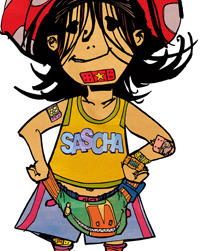SASCHA – Social and Academic School Transition Challenges
The project SASCHA studied the adaptation of the transition from primary to secondary school. Specifically, daily academic and social challenges of the transition as well as coping mechanisms were studied.
Project Description
The focus of the project SASCHA lied on the adaptation to secondary school as a critical life event which brings a number of changes to children's lives. Children face at least two central challenges while transitioning to secondary school: They need to invest cognitive resources in school achievement due to increased performance requirements and they need to reorganize their social relationships because they have new classmates. Successful adaptation depends upon cognitive, motivational, and self-regulatory antecedents resulting in differences between children in the adaptation process, and in positive long-term outcomes, such as school achievement and social adjustment. Understanding how children adapt to changing academic demands and develop new social relationships during transition were the main goals of the project. We conceived working memory as the central resource in daily self-regulatory processes.
In the project’s study, children completed playful working memory tasks on a smartphone repeatedly each day for four weeks. In addition, they answered short questions about mood, goals, events, and coping behavior to understand which processes lead to successful transition. In pre- and post-tests school achievement, fluid intelligence, and background variables were assessed. To trace the progress of adapting to secondary school, 200 children participated in this project during 4th, 5th and 6th grade.
Funding
Project Management
Prof. Dr. Florian SchmiedekProject Team
Project Details
| Status: |
Completed Projects
|
|---|---|
| Department: | Education and Human Development |
| Duration: |
04/2016 – 12/2020
|
| Funding: |
External funding
|
